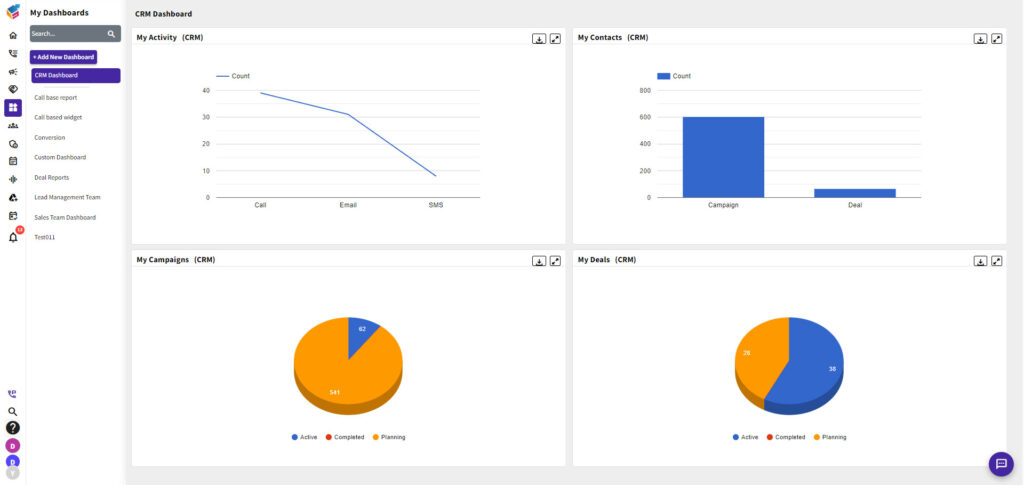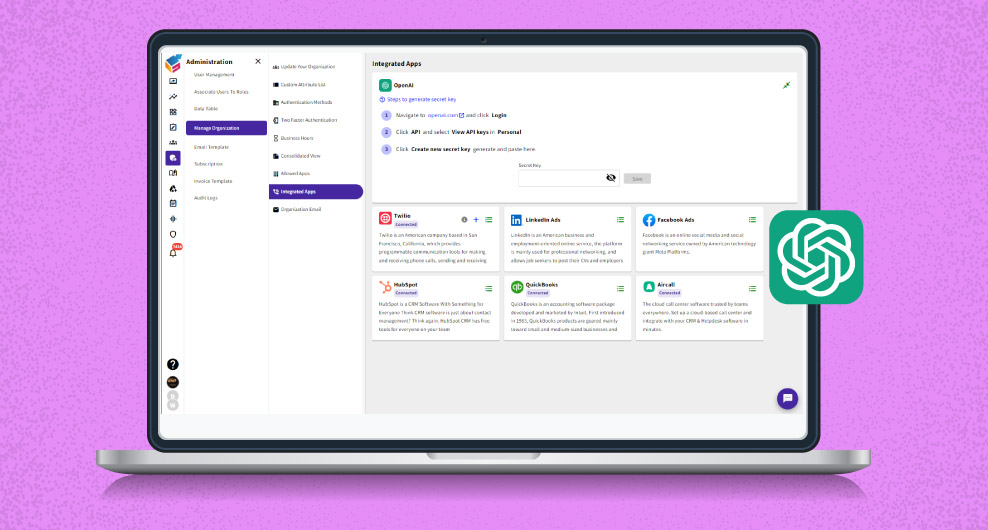Table of Contents
In today’s fast-paced business landscape, staying ahead in the sales world requires innovation and adaptability. One of the most potent tools in the sales arsenal is Artificial Intelligence (AI), which is revolutionizing businesses’ approach to sales strategies. In this blog, we will explore the transformative power of AI in sales, providing valuable insights and information for sales professionals and business leaders.
What is AI in Sales?
AI in Sales refers to applying Artificial Intelligence technologies to various aspects of the sales process. It is needed to address the evolving demands of modern sales environments. AI equips sales teams with data-driven insights, enhances lead generation and scoring, automates routine tasks, and personalizes customer interactions. It predicts sales trends, streamlines the sales pipeline, and optimizes marketing efforts.
The need for AI in Sales arises from the desire to improve efficiency, increase revenue, and provide a better customer experience. By harnessing the power of AI, sales professionals can make more informed decisions, allocate resources effectively, and build stronger relationships with customers in an ever-competitive market.
What Is Sales Automation?
Sales automation is a function that leverages technology to perform tasks that are often repetitive and time-consuming, thereby reducing manual effort and minimizing errors.
Traditional sales automation encompasses two main applications. The first involves the collection and maintenance of customer data, such as extracting deal information from emails and updating account records. The second application pertains to workflow automation, where actions within the sales process trigger tasks once performed manually, such as sending quotes for approval.
Data analysis is the main focus of more sophisticated applications of sales automation. An excellent illustration is pipeline management: automated analysis combined with AI can identify potential issues in any opportunities within a pipeline by analyzing deviations from expected key performance indicators (KPIs). It can also provide recommended actions that assist sales representatives in maintaining a smooth sales process.
The AI Advantage in Sales
Artificial Intelligence (AI) has emerged as a game-changer in the world of sales for several compelling reasons:
- Data-Driven Decision-Making: AI can process vast amounts of data to gain valuable insights into customer behavior, preferences, and market trends, enhancing the sales process. This information empowers sales teams to make data-driven decisions that improve customer engagement and drive sales.
- Personalization: AI-driven algorithms can analyze customer data to create personalized recommendations and marketing messages, facilitating customer onboarding and increasing the chances of closing deals and building stronger customer relationships.
- Lead Generation: AI-powered tools can identify and prioritize high-potential leads, streamlining the sales pipeline and enabling sales teams to show focus on prospects with the greatest likelihood of conversion. It not only saves time but also improves lead scoring and sales efficiency.
- Predictive Analytics: AI can forecast sales trends and customer behavior, enabling companies to adapt their sales strategy proactively and optimize sales forecasts. This anticipatory approach minimizes risks and maximizes opportunities.
AI-Powered Sales Tools
Several AI-powered tools are making a significant impact on the sales process:
- Chatbots and Virtual Assistants: Chatbots can provide immediate responses to customer inquiries and engage with them 24/7, improving customer onboarding. They streamline the sales process and enhance customer experience.
- CRM Enhancements: AI-enhanced Customer Relationship Management (CRM) software can automate administrative tasks, helping sales reps focus more on selling and building relationships, which is crucial for CRM software and deal management.

- Sales Forecasting Software: AI-driven forecasting tools can predict future sales based on historical data and current trends, allowing companies to allocate resources more effectively and optimize pipeline management.
- Email and Content Marketing Optimization: AI can analyze email campaigns and content performance, suggesting improvements for higher open and click-through rates, benefiting sales strategy.
- Voice Recognition and Analysis: Voice-driven AI tools are improving sales call analysis, providing insights into call quality and strategies for managing sales calls and enhancing deal management.
Challenges and Ethical Considerations
While AI offers tremendous potential, it also comes with its own set of challenges and ethical considerations, especially when it comes to data privacy and transparency in sales automation. Companies must be cautious to ensure that AI-driven decisions align with ethical standards.
Wrap Up
Artificial Intelligence is reshaping the sales landscape, offering data-driven insights, improving personalization, optimizing lead generation, and enabling predictive analytics. As AI evolves, it will play an increasingly vital role in sales strategies, reshaping how companies connect with their customers.
To fully leverage AI’s potential in sales, businesses should invest in the appropriate AI-powered tools, stay updated on industry best practices, and uphold ethical standards. By embracing AI’s transformative capabilities, businesses can revamp their sales efforts and maintain competitiveness in a constantly evolving market.




